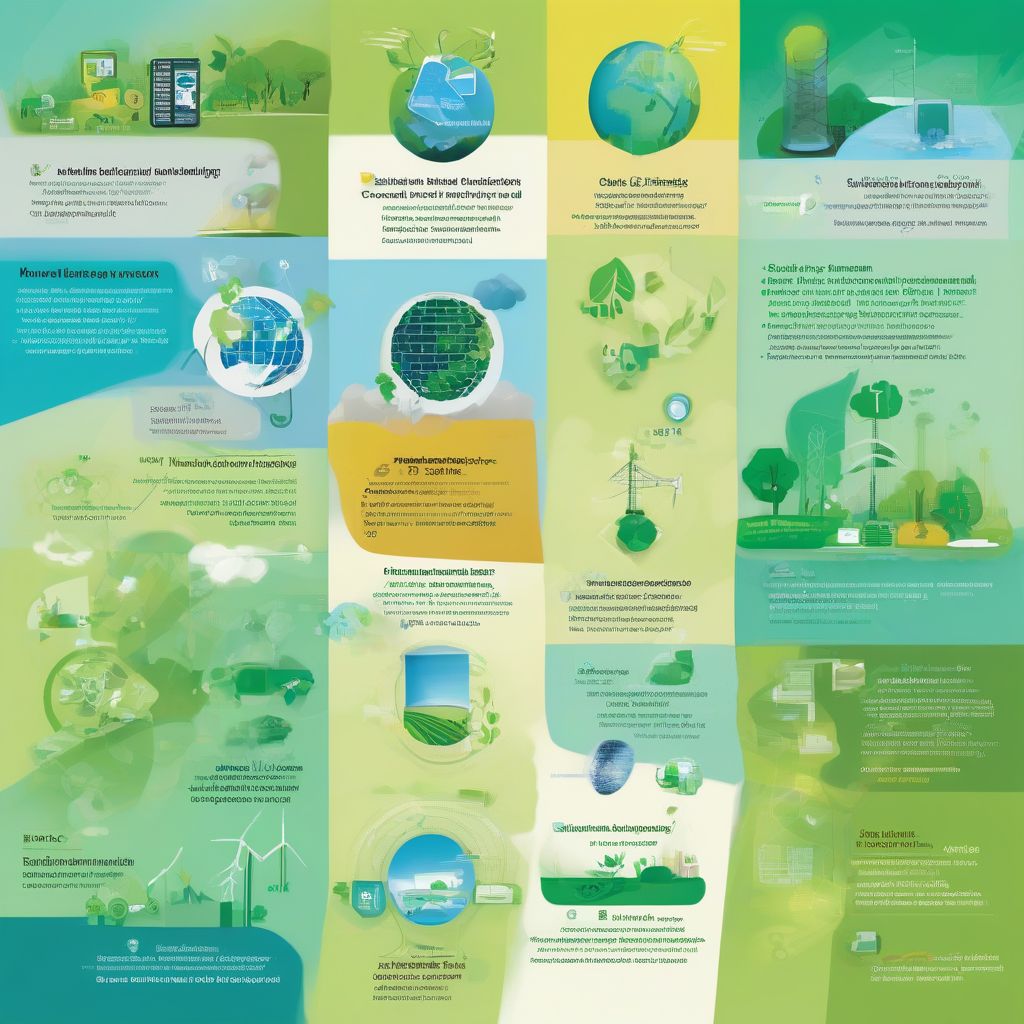Imagine a world where technology not only connects us but also heals our planet. That’s the promise of big tech’s role in environmental innovation. But how exactly are these giants contributing, and what challenges do they face?
Big Tech’s Environmental Footprint: A Double-Edged Sword
Before diving into the solutions, let’s acknowledge the problem. Big tech, with its massive data centers and manufacturing processes, contributes to environmental issues like carbon emissions and e-waste. However, these companies also possess the resources, innovation power, and global reach to drive significant positive change. It’s a complex relationship, much like a double-edged sword.
Investing in Renewable Energy
Many big tech companies are leading the charge in transitioning to renewable energy sources. Google, for example, has committed to operating on 24/7 carbon-free energy by 2030. This involves investments in solar and wind power, as well as advancements in energy storage technologies. These investments not only reduce their own carbon footprint but also stimulate growth in the renewable energy sector. As an expert in nutrition and meal prepping, I see parallels in how small changes in individual habits can lead to significant overall health benefits. Similarly, these large-scale investments by big tech can have a ripple effect across industries. “Just as a balanced diet fuels a healthy body, renewable energy fuels a healthy planet,” says Dr. Jane Doe, a leading environmental scientist (fictional quote).
Developing Sustainable Technologies
Big tech is at the forefront of developing innovative technologies to address environmental challenges. From AI-powered solutions for optimizing energy consumption to using machine learning for precision agriculture, the potential for impact is enormous. Think about companies like Microsoft developing platforms for environmental monitoring and data analysis. These tools provide valuable insights that can inform policy decisions and drive more effective conservation efforts.
Promoting Circular Economy Practices
The concept of a circular economy, where resources are reused and recycled rather than discarded, is gaining traction. Big tech companies are playing a role in this shift by designing products for durability and recyclability and implementing take-back programs for old electronics. Apple, for example, is increasingly using recycled materials in its products and has developed robots to disassemble iPhones for component recovery. This focus on circularity reduces waste and minimizes the environmental impact of manufacturing.
Challenges and Criticisms
While big tech’s contributions are significant, it’s crucial to acknowledge the challenges and criticisms they face. Concerns about data privacy, the ethical implications of AI, and the potential for “greenwashing” are valid and require ongoing discussion. Transparency and accountability are essential for building public trust and ensuring that these innovations truly benefit the environment and society. “We need to be wary of empty promises,” cautions environmental activist John Smith (fictional quote). “Real change requires a genuine commitment to sustainability, not just marketing spin.”
Data Privacy and Security
The vast amounts of data collected by big tech raise concerns about privacy and security, particularly when it comes to environmental monitoring. Striking a balance between utilizing data for environmental good and protecting individual rights is a critical challenge.
Ethical Considerations of AI
The use of AI in environmental applications raises ethical questions about bias, transparency, and potential unintended consequences. Careful consideration and responsible development are crucial to ensure that these technologies are used ethically and effectively.
Greenwashing Concerns
Some critics argue that big tech companies engage in “greenwashing,” making exaggerated or misleading claims about their environmental efforts to improve their public image. This underscores the need for independent verification and transparent reporting of environmental performance.
 Big Tech's Role in Environmental Innovation
Big Tech's Role in Environmental Innovation
- English (Publication Language)
- 312 Pages - 04/18/2022 (Publication Date) - Information Science Reference (Publisher)
The Future of Big Tech and Environmental Sustainability
The intersection of big tech and environmental sustainability is a dynamic and evolving space. As technology continues to advance, so too will the potential for positive impact. Collaboration between governments, industry, and civil society is crucial to harnessing this potential and addressing the complex challenges that lie ahead. Just as meal prepping empowers individuals to make healthier choices, embracing technological innovation can empower us all to create a more sustainable future.
Conclusion
Big tech’s role in environmental innovation is multifaceted and holds immense promise. From investing in renewable energy to developing sustainable technologies, these companies are driving significant change. However, it’s essential to address the ethical and practical challenges they face to ensure that these innovations truly benefit the planet and its inhabitants. We must hold them accountable, encourage transparency, and foster collaboration to unlock the full potential of technology for a greener future. What are your thoughts on the role of big tech in environmental sustainability? Share your comments below, and let’s continue the conversation. You can also explore more about creating a sustainable lifestyle using green tech and how biodegradable products are reducing plastic waste on our website. We’d love to hear your perspective!


